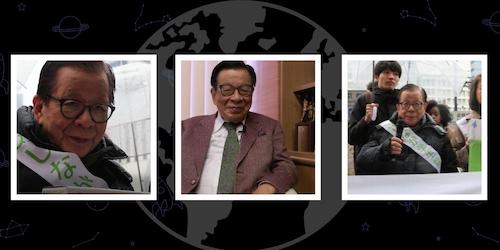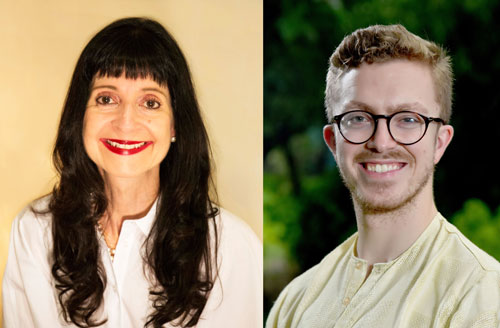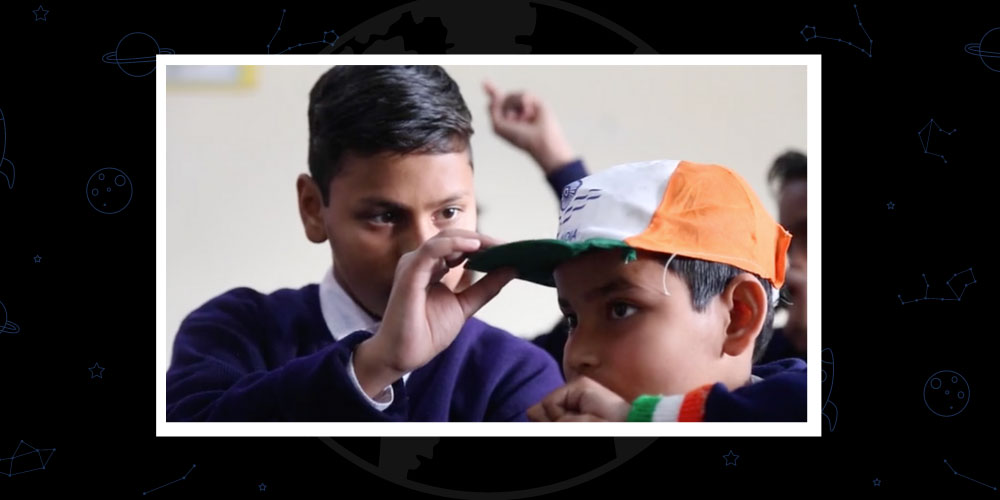This month, audiences can screen My Name is Tama-chan, written and directed by Christopher Scott Carpenter, on the Planet Classroom Network. This film is curated by Planet Classroom.
My Name is Tama-chan is a short biographical documentary that tells the story of Yoshiomi Tamai, born in Osaka, Japan, in 1935.
Following the loss of his mother in a traffic accident in 1964, he investigated the state of traffic accidents in Japan and became an advocate, critiquing the inadequacies of Japan’s healthcare and legal systems.
In 1969, he founded the Association for Traffic Accident Orphans. In 1998, he became President at Ashinaga, an NGO focused on the education and social rehabilitation of orphaned students, which he continues to this day. His given name is “Tama-chan” – a name suffix normally reserved for children.
The Global Search for Education is pleased to welcome Director Christopher Scott Carpenter.
Chris, how did you first come across Tama-chan’s story?
A few years ago I was producing content and consulting on projects for a non-profit organization called Ashinaga, which is headquartered in Tokyo, Japan. Ashinaga focuses its efforts on the education and social empowerment of orphans in both Japan and sub-Saharan Africa. As I engaged more and more with the organization’s community, I learned a deeper story about its founding: Yoshiomi Tamai, or Tama-chan, as those who know him call him, conceived of Ashinaga after he lost his own mother in a traffic accident when he was a child, and he vowed to help improve the lives of children like him who have also lost one or both of their parents. I was commissioned to produce a short biographical film on Tama-chan for a conference of high-profile sector leaders that Ashinaga hosts every year.
What about him inspired you to make this video? Tell us something you learned about him in the process of telling this story that you didn’t know before.
The name “Tama-chan” actually carries a surprising amount of nuance that might not be easily ascertained by those who aren’t familiar with the Japanese language. As in many languages, and especially those in East and South Asia, the concepts of respect and social hierarchy are baked into the grammar. In Japanese, when you address someone in a professional manner or of equal social status, such as a business partner or shopkeeper, you use the suffix – san. An equivalent in English is something like a “Mr.” or “Ms.” Yoshiomi Tamai chooses to instead actively and purposefully diminish his station through the use of the more child-appropriate chan suffix. He does this, of course, because he wants to be approachable to the young people with whom he works. In preparation for my time in Japan, I, of course, researched these honorific titles; as a result, I was struck by the weight of what, from the outside looking in, was something as simple as a name that subverted everything I know about the cultural context, and positioned Tama-chan as someone who was willing to ostensibly reduce his social standing so as to better achieve his mission to help young people. I structured the entire project around this name.
What do you think politicians worldwide learn from Tama-chan?
Tama-chan is someone who, even in his chosen moniker, reduces his station for the betterment of his work and his community. So often we see politicians pursue power rather than impact; our news cycles are filled with stories of leaders who seek to serve themselves rather than, and often at the expense of those they purport to serve. I wish politicians the world over could see the example set by a leader like Tama-chan, and understand not only his reach, but the individual impression he makes on the individual young person who observes his behavior and finds someone friendly and approachable. I wish politicians would better embody the same humility.
What do you think we can all learn from Tama-chan?
Although Ashinaga as a formalized organization was many years in the making, as an idea and mission, it was conceived after Tama-chan experienced extraordinary hardship – the loss of his mother when he was a young man. He wanted to turn the pain he felt into something that was capable of doing good for others for whom he had deep empathy and understanding. He let his life circumstances fuel his altruism and activism. We can all learn to better and more collaboratively act upon our desires for a better world – as the idiom goes: “be the change we wish to see.”
C.M. Rubin and Chris Carpenter
Don’t Miss My Name is Tama-chan, written and directed by Christopher Scott Carpenter, now screening on the Planet Classroom Network. This film is curated by Planet Classroom.







Recent Comments